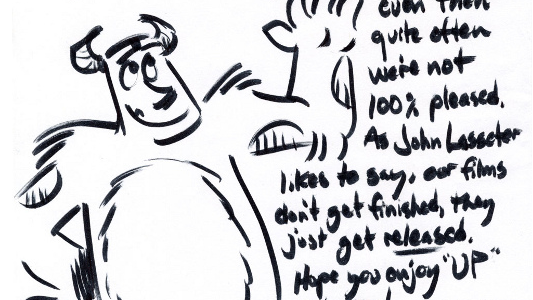 The world of tech has a popular maxim: f*ck it, ship it. It means that a new app, website or software update should be released once it’s good enough, even if it has a few bugs. This attitude powered Facebook’s “move fast, break things” ascent to becoming the world’s biggest social network. Netflix founder Reid Hoffman famously said, “If you are not embarrassed by the first version of your product, you’ve launched too late.”
The world of tech has a popular maxim: f*ck it, ship it. It means that a new app, website or software update should be released once it’s good enough, even if it has a few bugs. This attitude powered Facebook’s “move fast, break things” ascent to becoming the world’s biggest social network. Netflix founder Reid Hoffman famously said, “If you are not embarrassed by the first version of your product, you’ve launched too late.”
In a fast-paced age of instant gratification, it seems like there’s no space or time for perfectionism. It’s often seen as a psychological disorder and perfectionists are people who need to be controlled. But some of the greatest modern creators are acknowledged perfectionists, from Steve Jobs at Apple to Pixar’s John Lasseter. Film director David Fincher is infamous for shooting multiple takes—one scene in Zodiac was done 56 times.
Perfectionism isn’t dead but how you get the most from your inner perfectionist has changed. You need to produce and share work faster than ever, but even if you aren’t aiming for Oscar glory or a record-beating share price, it’s worth getting details right so you’re creating high quality work and not fixing problems later. These five tips will help you embrace your inner perfectionist while remaining productive.
1) Decide how perfect it should be
Think about what you’re working on and how perfect it really needs to be. A flyer for a one-off event that will end up in the trash next week may not need you to spend hours poring over the smallest detail. A video you hope will still be watched on YouTube five years from now demands more attention. Of course, even ephemeral creations have long-lasting potential, like these beautiful hand lettered tickets that people at a whiskey tasting event preferred to keep instead of claiming their free drink.
2) Be more collaborative
As Professor of Digital Arts at University of the Arts, London, Fred Deakin noticed how his students rarely collaborated effectively. “Students are marked on individual work so collaborating isn’t an obvious thing to do. My students would tinker endlessly with a piece of work until they feel it’s perfect before showing it to anyone. But the best creations often have little in common with the first draft and other people’s feedback is invaluable. I now run Collabology, a workshop designed to encourage collaboration and to show that aiming for perfection means sharing imperfect work.”
3) Focus your perfectionism
Italian philosopher Vilfredo Pareto’s observation that 20% of the pea pods he grew in his garden produced 80% of his total peas formed the basis of the Pareto principle. The 80-20 rule has become a business standard and can also apply to your creative endeavor. If you assume that the majority of your audience are really just interested in a small part of what you create, figure out what that is and make sure it’s perfect.
4) Impose strict deadlines
Saturday Night Live producer Lorne Michaels said about the weekly sketch show, “The show doesn’t go on because it’s ready; it goes on because it’s 11:30.” Deadlines are great for limiting perfectionism so even if your client or project doesn’t have a deadline, impose your own. Before work starts on every Pixar film, the studio sets a release date. As this amazing contribution to Letters of Note shows, John Lasseter’s opinion is “Our films don’t get finished, they just get released”.
5) Remember that imperfection is relative
While you may see every flaw in your work, most other people won’t. At the end of a project, if your client is happy or your audience approves, then you’ve succeeded. Learning from mistakes lets you produce even better work next time so you’re always improving. Even an outright failure can be considered a step towards success—remember that the greatest baseball players of all time failed to hit half the pitches they faced.
Are you a perfectionist? How do you ensure your work is as good as it can be without missing deadlines and being unproductive elsewhere? We’d love to hear your tips in the comments.






How much technology has been wasted because Gates and Microsoft rush product out the door just because memory has become cheaper ? Why do they constantly have to fix code with updates? Maybe they need a little more of this thought. Now they want to control our kids with common core. There is a point of balance. What is yours?
Thanks for a great article. I confess – I am a perfectionist. In a world where we are increasing shooting first and aiming later, it’s like swimming against the tide and feeling like ‘something is wrong with me’. Even my choice of verb, ‘confess’ is interesting. Applying these principles would really help channel it productively.
The secret is in sharing knowledge, it builds loyalty that converts in faster, better results.
For one thing, I try to make sure I am using the correct word. One is poring over work instead of pouring over work which sounds quite messy. :^)
Karen Heaster: Thanks for that. I’ve edited the copy to correct this error. I guess this proves point no. 2 – sharing something is the best way to make it better.
Love the article. Was the last sentence about baseball players a faux pas or intentional? It’s grammatically incorrect. :)
Jenny: Thanks – have fixed that now. Wow, ironic that an article on perfection had two (?) mistakes in it. But again, proof that sharing is the key to perfection.
I am what I pseudo-scientifically call a “realist.” A perfectionist in disguise. As long as I know there’s no such thing as perfect, I’m fine. But I do resent particularly in this age how “perfectionism” is seen as some sort of flaw or negative, like “She’s such a perfectionist.” as though it’s a mark against you to do the best you can do. And somehow acceptable to do a less than stellar job.
Great article, Colm. I think we strive for perfection because the world/people never have a problem constantly pointing out errors instead of looking at the big picture. I’m guilty of this myself at times. If the imperfection does not change the content/message/product, then you’re absolutely correct, put it out there for everyone to benefit. Thanks again for sharing!
Great article in support of perfectionists! I confess that my weakness is corroboration. The reason people do not share a work until it is completed is simple: I have a vision and I do not need it to be changed. If I wait until I am finished, I have completed that vision. Changing course at the beginning of a journey will put you at a different destination that changing course at the end. I think corroboration takes the humility to know that you aren’t perfect, combined with the confidence to reject advice that changes your committed purpose.
Thanks – gives me comfort! A lot of familiar material in here, worth remembering/reviewing (the Lorne Michaels quote is one of my faves).
One BIG issue for solopreneurs is lack of people for collaboration – finding others who have enough knowledge about what you’re trying to do and the savvy to evaluate/feedback on a draft is TOUGH!
Great article…but, I hope my surgeon, lawyer, architect, engineer, etc. remain perfectionist, work through the challenges and finish what they start!
Agree with Raji – I’m a lapsed perfectionist. No doubt it is rooted in the school system with too much emphasis on the individual. Now I am pushing my edge by both asking for help and sharing generously. The inputs and builds that come are worth the risk!